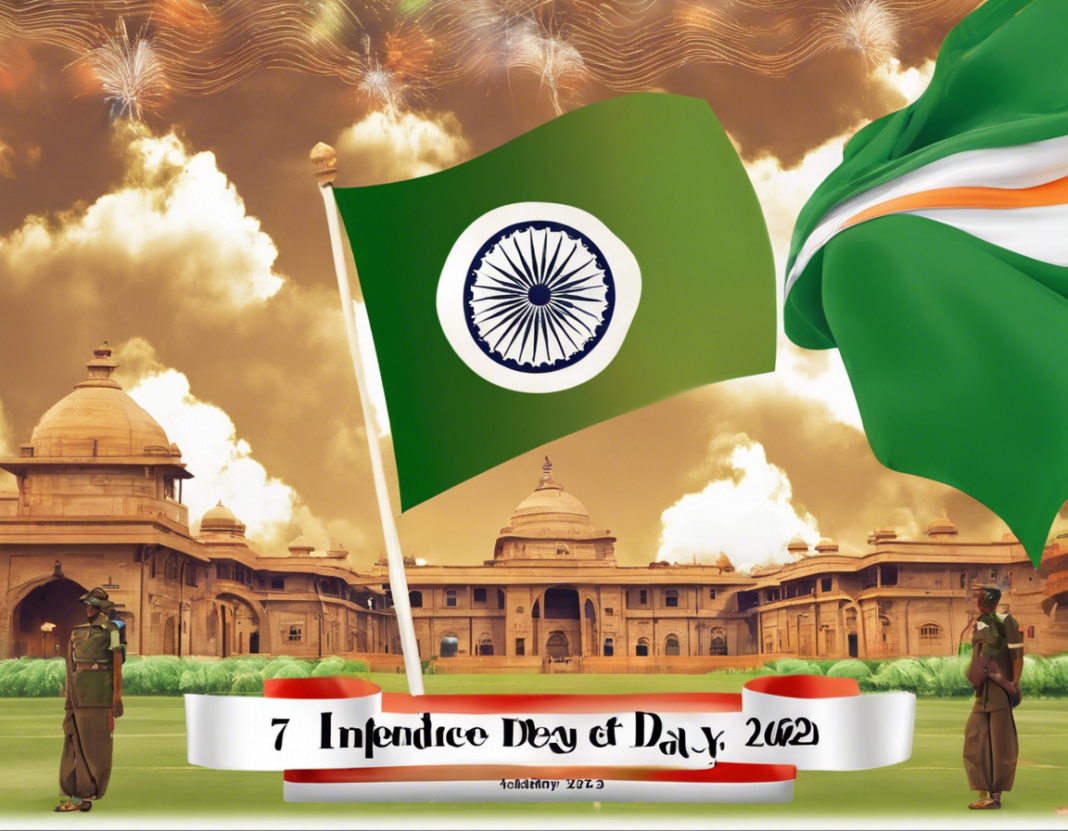On the 15th of August, 2023, India will celebrate its 77th Independence Day, marking the day when the country gained freedom from British colonial rule in 1947. This day holds profound significance in the hearts of all Indians, as it symbolizes the hard-fought struggle for independence and the journey towards progress and development since then.
As the nation gears up to commemorate this historic event, it is crucial to reflect on the achievements, challenges, and aspirations that define India’s journey as an independent nation. From political milestones to social transformations, economic advancements to cultural richness, India has made remarkable strides in various spheres over the past seven decades.
The Significance of Independence Day
Independence Day is not just a public holiday or a ceremonial occasion; it is a day of remembrance, gratitude, and recommitment to the values of freedom, democracy, and unity. It serves as a reminder of the sacrifices made by countless freedom fighters who laid down their lives for the country’s independence and the principles of equality, justice, and inclusivity.
Celebrating Freedom and Unity
Independence Day celebrations are marked by flag hoisting ceremonies, parades, cultural performances, and patriotic songs that evoke a sense of national pride and solidarity. People from all walks of life come together to celebrate the spirit of freedom and unity that binds the diverse fabric of Indian society.
Progress and Development
On this significant day, it is essential to acknowledge the progress and development that India has achieved in various fields, including technology, education, healthcare, infrastructure, agriculture, and space exploration. India’s emergence as a global economic powerhouse and a hub of innovation is a testament to its potential and capacity for growth.
Challenges and Opportunities
While India has made significant progress since independence, it still grapples with challenges such as poverty, inequality, corruption, environmental degradation, and social tensions. Addressing these challenges requires collective efforts, government initiatives, and societal engagement to ensure inclusive growth and sustainable development for all citizens.
Conclusion
As India celebrates its 77th Independence Day, let us honor the past, embrace the present, and envision a future that is built on the principles of freedom, equality, and progress. Let us renew our commitment to upholding the values of democracy, diversity, and unity that define the essence of being Indian. Happy Independence Day to all!
Frequently Asked Questions (FAQs)
1. What is the significance of India’s Independence Day?
India’s Independence Day commemorates the country’s freedom from British colonial rule on August 15, 1947. It symbolizes the struggle for independence and the values of democracy, equality, and unity.
2. How is Independence Day celebrated in India?
Independence Day is celebrated with flag hoisting ceremonies, parades, cultural events, and patriotic songs across the country. It is a day of national pride and solidarity.
3. What achievements has India made since independence?
India has achieved significant progress in various fields, including technology, education, healthcare, infrastructure, agriculture, and space exploration. It has emerged as a global economic powerhouse and a hub of innovation.
4. What challenges does India face post-independence?
India faces challenges such as poverty, inequality, corruption, environmental degradation, and social tensions. Addressing these challenges requires collective efforts and sustainable development strategies.
5. How can individuals contribute to India’s progress and development?
Individuals can contribute to India’s progress by promoting a culture of innovation, integrity, and inclusivity in their communities, supporting initiatives that address social issues, and actively participating in civic engagement and nation-building activities.

